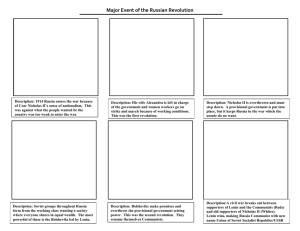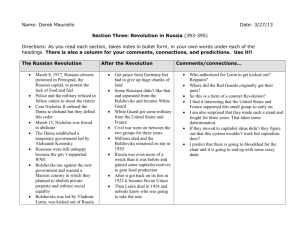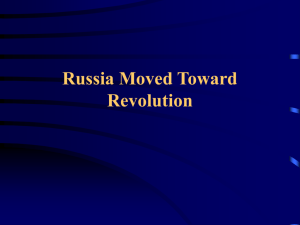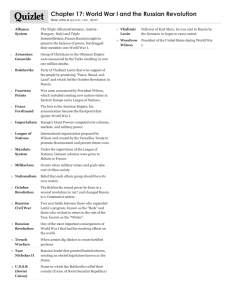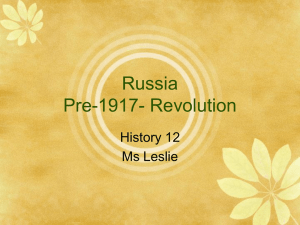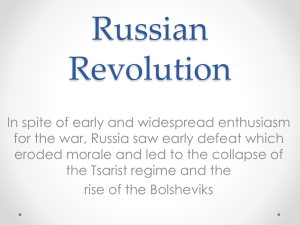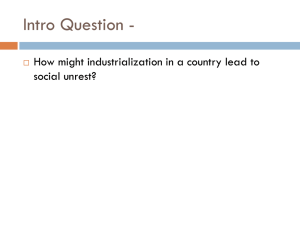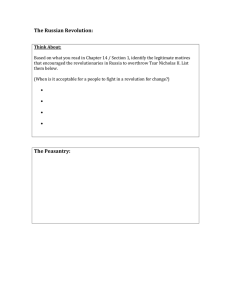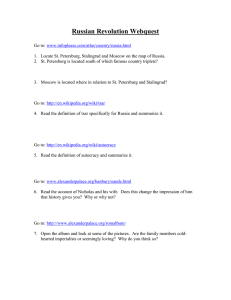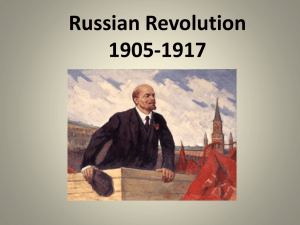Chapter 14 Lesson 3 Day 1
advertisement
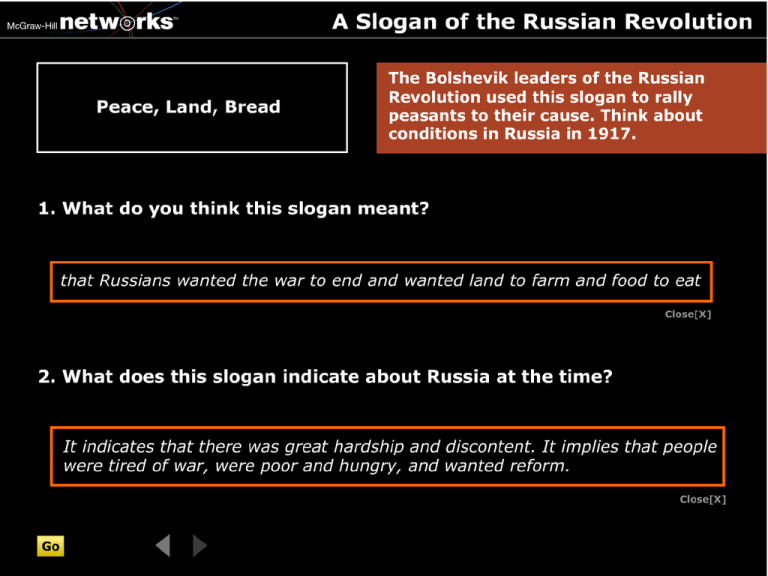
Discussion What does this slogan indicate about Russia at the time? It indicates that there was great hardship and discontent. It implies that people were tired of war, were poor and hungry, and wanted reform. Failures in World War I Russia lacked military leaders and lacked adequate weapons and other military supplies, which led the army to suffer incredible losses. Rasputin's influence While Nicholas II was at the battlefront, Alexandra became influenced by Rasputin which upset conservative aristocrats. Strikes in Petrograd High food prices led to strikes throughout Petrograd. When soldiers were ordered to clear the crowds, many soldiers joined with the protesters instead. Abdication of Nicholas II at the urging of the Duma Because he lacked the support of the army as well as the aristocrats, Nicholas II abdicated the throne on March 15. Soviets' challenge to provisional government: The government that replaced the monarchy faced strong opposition from councils called soviets. Discussion Why might the March revolution be called the tipping point of the Russian revolution? While isolated protests had taken place earlier, the March events quickly escalated and forced the end of czarist rule. Faction of Marxists: The Bolsheviks were a group of Marxists that favored violent revolution. Lenin's leadership: V. I. Lenin returned to Russia from Germany to lead the Bolshevik opposition. Coalition of groups: Lenin worked to gain widespread support from soldiers, workers, and peasants. Promises to the people: The Bolsheviks promised to redistribute land to the people and end the war. Discussion Why did German military leaders hope to create disorder in Russia? They hoped that if disorder broke out in Russia, the Russians would drop out of World War I. Germany would then have to fight on only one front. Discussion How do the three words of the slogan relate to the background of the Russian Revolution? Each of the words refers to something that led to unrest among the people and thus to the start of the revolution.
